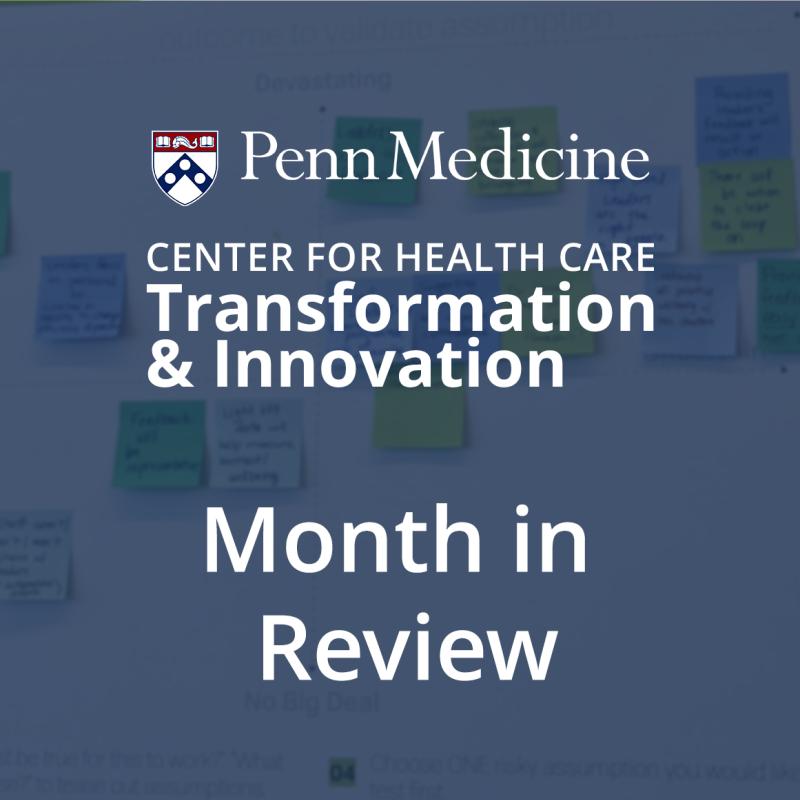
Tiny flaps, big waves: Drawing parallels between the butterfly effect and health care innovation
Krishleen Kaur Kohli reflects on a year of immersion and discovery with the Penn Medicine Nudge Unit.

Spotlight on: Corie Rhodes
Meet Corie Rhodes, a physician shaping quality improvement initiatives across Penn Medicine Primary Care.

More mammograms completed with EHR self-scheduling
Mammogram completion rose by 13 percentage points when patients had the ability to self-schedule a screening through the electronic health record portal. The research supports self-scheduling – a low-cost, scalable intervention that reduces friction in care pathways and increases patient autonomy – as a means to improve screening completion rates.

November 2023 Month in Review
Each month, we round up news stories and publications about work happening across CHTI. Read the latest issue and subscribe to have the Month in Review sent directly to your inbox.

AI chatbot offers answers, bridges care for new moms
Kirstin Leitner, a physician lead on the Healing at Home program, explains how a text messaging bot that uses natural language processing is helping patients in the postnatal period. She also shares strategies used to make the bot more effective, like educating patients on how to interact with it and incorporating algorithmic approaches with symptom reporting.